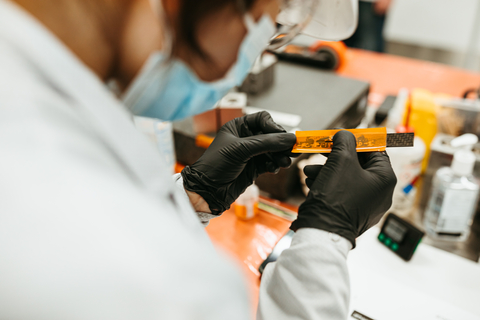Joby Begins First Conformity Testing, Enters Next Phase of Certification Process
Joby Aviation (NYSE:JOBY) has commenced FAA conformity testing, marking a crucial step in its type certification process for all-electric aircraft. This testing is a first in the implementation phase and showcases the maturity of the company's production and quality systems. Joby is collaborating with Toray to qualify a new lightweight composite material tailored for eVTOL aircraft. Joby aims to launch its aerial ridesharing service in 2024, targeting urban congestion reduction with a maximum range of 150 miles on a single charge.
- Commencement of FAA conformity testing signifies progress in the type certification process.
- Partnership with Toray to develop a lightweight composite material enhances production capabilities.
- None.
Insights
Analyzing...
-
Company begins conducting
FAA testing, marking Joby’s first entry into implementation phase of type certification process - Demonstrates maturity of Company’s production and quality systems
-
Partnering with
Toray to qualify new lightweight composite material ideal for eVTOL aircraft

Joby has begun conformity testing with the
The start of conformity testing is a significant moment for Joby as the Company’s aircraft type certification program enters the “implementation phase” for the first time.
Joby’s first series of conformity tests, observed and documented by an on-site
The testing, developed by Joby engineers, is designed to confirm the material strength of composite coupons that are representative of the aerostructure of Joby’s aircraft. The resulting compliance data will form the foundation for future testing of structural components of the aircraft as Joby progresses through the type certification process.
Each system and structure of the Joby aircraft will enter the implementation phase and begin conformity testing following completion and approval of requirements definition and compliance planning. During this phase, Joby will complete thousands of inspections and tests to demonstrate the airworthiness and safety of its aircraft before receiving a type certificate from the
“After years of development and company testing, we’re excited to formally begin the process of conformity testing,” said
In November, Joby completed its first
The coupons, constructed using a toughened epoxy and state-of-the-art carbon fiber, result in a material that is lighter and stronger than existing aerospace-grade composites, making it ideal for a high-performance eVTOL aircraft.
“Entering this stage of testing demonstrates that we’re capable of manufacturing composite parts in accordance with their design, our quality system is capable of producing conforming composite parts for the aircraft, and that we have the requisite traceability and design verification processes in place to progress toward our type and production certifications,” said
In 2020, Joby became the first and only eVTOL company to sign a G-1 (stage 4) certification basis with the
ABOUT
Forward Looking Statements
This press release contains “forward-looking statements” within the meaning of the “safe harbor” provisions of the Private Securities Litigation Reform Act of 1995, including but not limited to, statements regarding the development and performance of our aircraft including our initial plant capacity and regulatory outlook; our business plan, objectives, goals and market opportunity; and our current expectations relating to our business, financial condition, results of operations, prospects and capital needs. You can identify forward-looking statements by the fact that they do not relate strictly to historical or current facts. These statements may include words such as “anticipate”, “estimate”, "expect”, “project”, “plan”, “intend”, “believe”, “may”, “will”, “should”, “can have”, “likely” and other words and terms of similar meaning in connection with any discussion of the timing or nature of future operating or financial performance or other events. All forward looking statements are subject to risks and uncertainties that may cause actual results to differ materially, including: our limited operating history and history of losses; our ability to launch our aerial ridesharing service and the growth of the urban air mobility market generally; our plans to operate a commercial passenger service beginning in 2024; the competitive environment in which we operate; our future capital needs; our ability to adequately protect and enforce our intellectual property rights; our ability to effectively respond to evolving regulations and standards relating to our aircraft; our reliance on a third-party suppliers and service partners; uncertainties related to our estimates of the size of the market for its aircraft and future revenue opportunities; and other important factors discussed in the section titled “Risk Factors” in our Registration Statement on Form S-1 (File No. 333-260608), filed with the
View source version on businesswire.com: https://www.businesswire.com/news/home/20220210005434/en/
Investors
investors@jobyaviation.com
+1-831-201-6006
Media
press@jobyaviation.com
Source:







